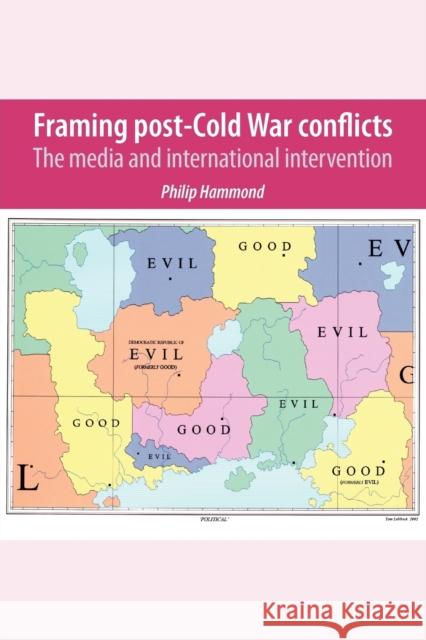Framing Post-Cold War Conflicts: The Media and International Intervention » książka
Framing Post-Cold War Conflicts: The Media and International Intervention
ISBN-13: 9780719086694 / Angielski / Miękka / 2011 / 256 str.
Framing Post-Cold War Conflicts: The Media and International Intervention
ISBN-13: 9780719086694 / Angielski / Miękka / 2011 / 256 str.
(netto: 97,35 VAT: 5%)
Najniższa cena z 30 dni: 90,09
ok. 30 dni roboczych
Dostawa w 2026 r.
Darmowa dostawa!
In the years since the end of the Cold War there have been many competing ideas about how to explain contemporary conflicts, and about how the West should respond to them. This study, newly available in paperback, examines how the media interpret conflicts and international interventions, testing the sometimes contradictory claims that have been made about recent coverage of war. Have the media peddled misleading ideas about 'ancient ethnic hatreds', or have they acted as the conscience of the West, urging greater concern for humanitarian suffering and human rights abuses? Have reporters acted as propaganda mouthpieces, or have they taken a critical and sceptical view of international military action? Framing post-Cold War conflicts takes a comparative approach, examining UK press coverage across six different crises. Through detailed analysis of news content, it seeks to identify the dominant themes in explaining the post-Cold War international order, and to discover how far the patterns established prior to 11 September 2001 have subsequently changed. Throughout, the key concern is with the legitimacy of Western intervention: the book investigates the extent to which Western military action is represented as justifiable and necessary. Based on extensive original research, the book includes case studies of two 'humanitarian military interventions' (in Somalia and Kosovo), two instances where Western governments were condemned for not intervening enough (Bosnia and Rwanda), and the post-9/11 interventions in Afghanistan and Iraq. This book will be essential reading for scholars and students in the fields of Media Studies, Journalism, Politics and International Relations.











